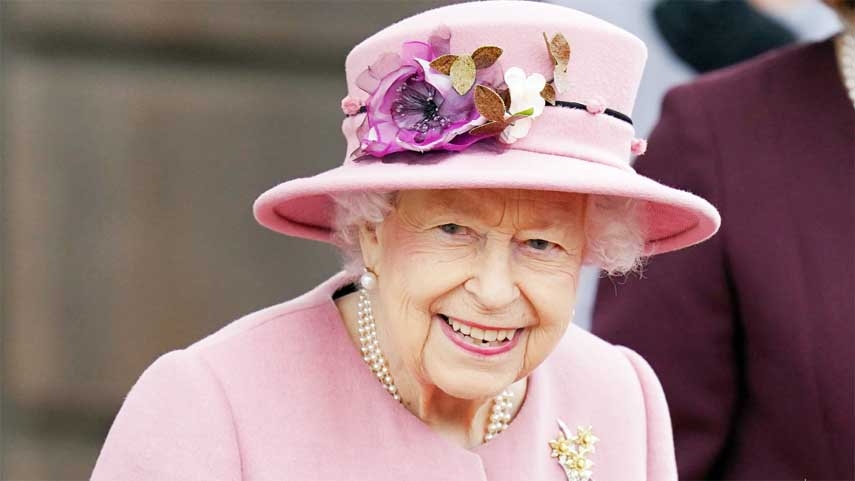
Mick O’Reilly :
The State Opening of Parliament at Westminster is an event packed with pomp and pageantry, where symbolism is steeping in historical context, and where the imperious majesty of Britain’s devolved constitutional arrangement is on display in the oak-panelled grandeur of the halls itself.
Last week, the new session opened, and with Queen Elizabeth II now 96, about to celebrate 70 years on the throne and suffering from mobility issues that are limiting her ability to perform formal duties as regularly as the powers of her office demands, she was absent for the great occasion of state.
This has only happened twice before, each time when she was pregnant with two of her four children. So, so Tuesday, Britons and yes, the entire global audience, caught a glimpse of what the new order will be when she is no longer here. Sadly, that is a prospect that is becoming ever more real with each passing month. She is 96 and has visibly aged and weakened since the death last April of her long-time husband, Philip, the Duke of Edinburgh.
On Tuesday, Charles, the Prince of Wales – the heir who will become monarch on his mother’s passing – dressed in the formal uniform of a full Sea Lord, delivered the government’s agenda for the next Session of Parliament.
He was accompanied by his wife, Camilla, the Duchess of Cornwall. The Queen has made it clear that on her passing, Camilla as Charles’ consort, will be bestowed with the title Queen – erasing any historical sentiment that may have remained since the death of Princess Diana in 1998 and Camilla’s role in the very public break-up of that royal marriage some years before.
William, the Duke of Cambridge and the heir to the throne after Charles, was also present. In all, it was a very dignified and public occasion where the continuity of the House of Windsor was on full display.
In two weeks’ time, the United Kingdom will have a four-day long weekend to mark the platinum jubilee of Elizabeth’s reign, coming to the throne on the death of her father, George VI. Some 90 per cent of Britons know no other monarch so long is her reign.
According to opinion polls, Elizabeth remains the most popular royal by far, with some 61 per cent approving of her work. But break that number down by age and the results are very enlightening indeed.
For those over 70 years of age, her popularity levels exceed 80 per cent – numbers that any elected head of state would give their right arm for.
But that level falls off with each decade asked to express an opinion. Among millennials, she has support levels in the low 30s. And the way things are in the UK right now, Prime Minister Boris Johnson would give anything to have support levels in the low 30s among any age demographic.
But there is also a shift in the Commonwealth that raises questions over what happens when Elizabeth passes and Charles takes the royal reins – and reigns!
There is a cliché that used to be used on those Pathe newsreels that provided news footage for cinemas, describing how some former colony, an outpost of the British Empire won its independence, with the Union Jack being lowered and the new nation’s flag being raised, and the presenter would invariable remark how the Sun was setting on the Empire but that a new dawn was beginning, in the form of membership of the Commonwealth.
Nowadays, there’s a growing view that it’s not so much that the Sun set on the Empire, but rather that those nations were sunburned by all of the laws and forged changes to culture brought by the British.
When the Duke and Duchess of Cambridge went on a Royal Visit to the Commonwealth nations of the Caribbean and Central America, events on the tour had to be hastily rearranged. In Belize – formerly known as British Honduras – a native tribe were protesting against the royals over land procurement issues.
In the Bahamas, Prince Charles oversaw the move from the nation into a full blown republic, removing his mother as Head of State and opting instead for an elected presidency.
Across the Caribbean, the issue of slavery and how Britain should pay for its colonial past, is an issue that is driving island nations to opt for elected presidency.
The question now is just will the commonwealth be when she passes? Now, it is a cultural club with sporting links united only by the past that, in the fullness of time, is being reinterpreted as division.
With global trade and the importance of trade ties bringing money and prosperity, does the Commonwealth have the necessary economic heft that other trade or regional bodies would bring?
Is there enough now to hold the Commonwealth together other than the fact that it’s a club where so many territories and lands were coloured pink on old linen maps that hung in classrooms throughout the empire. And in those classrooms, national languages and customs were forcibly erased.
What I found most interesting is that as Charles read out the government’s intent for the next Session of Parliament, there was no mention of a Scottish referendum or more powers for the devolved regions of the UK.
There was no political recognition either in legislative form of dealing with the fact that in Northern Ireland, Sinn Fein won a historic election and Irish unity has taken a step closer.
There was no mention either of dealing with the crisis brewing with the European Union over the Brexit deal Johnson signed – the deal that is pitting Northern Ireland against the rest of the UK. Nor, indeed, were there concrete measures that most Britons wanted to see deal with the cost of living crisis and where inflation will reach 10 per cent this year.
But the pageantry looked pretty.
(Mick O’Reilly is Foreign Correspondent, Gulf News).

